If you’re an aspiring expat who dreams of a life spent nestled within a historic European city, then living in Porto may be your dream come true! With an aesthetic that speaks of romance and a culture that is both relaxed and welcoming, Porto certainly has a lot to offer to all who fantasize about a new life abroad.
Porto is second in size only to Lisbon, but that doesn’t mean it’s a huge city. Only around 230,000 residents live within Porto, but over 1.8 million people live in the city’s metropolitan area. As you explore the city, prepare to discover warrens of charming narrow streets, stunning views, beach fronts, colorful houses, fragrant bistros, and trendy gin bars.
Is the city right for you? We’re going to deep-dive into the vibe of Porto, the costs of living here, the nightlife, the job market, whether it’s family-friendly, great for retiring, and more! Read on to discover the ins and outs of living in Porto as an expat.
Is Porto a good place to live?
The short answer is Yes, Porto can be a great place for expats of all ages. It’s brilliant for families, attractive for digital nomads and can offer a lot to expat retirees looking for a vibrant (but not too vibrant) urban lifestyle by the beach.
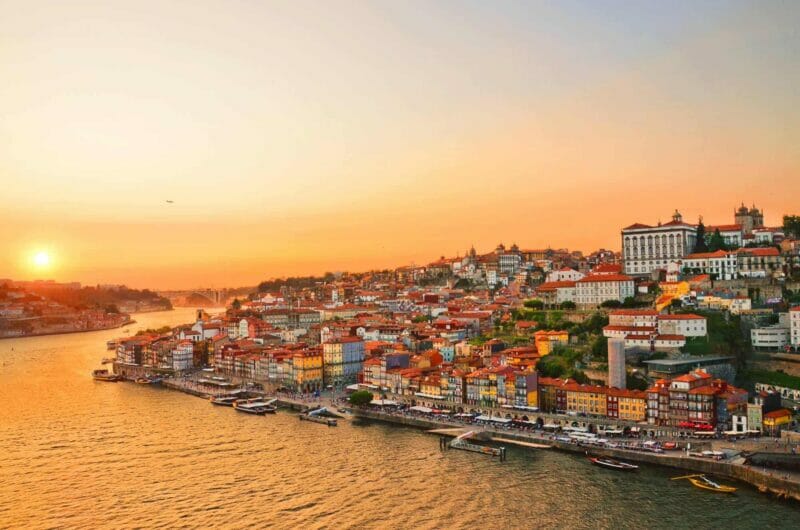
The city of Porto sits proudly at the mouth of the iconic Douro River. If you happen to love Port wine and you’re thinking about living in Porto, then the fates have certainly aligned because Port wine is actually named after the city of Porto!
The south side of the Douro’s banks is decorated by the striking facades of some of the world’s most famous Port houses. Popping in for a tour and tasting session is a must, but we’ll come back to that later!
Without a doubt, living in Porto is all about being immersed in history and charm. As one of Europe’s oldest cities, its ancient heart is registered as a World Heritage Site by UNESCO.
The city’s time zone is GMT (Greenwich Mean Time), so you’ll be in sync with London. Some locals speak English, but not all—so grab your phrasebook and book some classes!
Those living in Porto will need a wallet full of Euros before buying fresh flowers or vegetables from the gorgeously quaint and colorful Mercado do Bolhão.
Expect to enjoy a backdrop of traditional Portuguese facades decorated with hand-painted blue and white tiles known as azulejos. When you’re ready to head to those Port houses, cross the impressive double-layered Dom Luis Bridge while taking in the beautifully painted rabelo boats that float below.
All the while, enjoy the laid-back energy of the locals and many chances to stop for a sweet snack at one of the city’s confeitarias.
What is it like living in Porto?
Porto is definitely one of the best places to live in Portugal for expats.
If you adore the idea of living in a city that will benefit your being from top to toe, then Porto is an excellent choice. Not only do its inhabitants enjoy a bountiful Mediterranean-style diet (fresh-caught fish and even vegan eateries await), but also plenty of opportunities to live well.
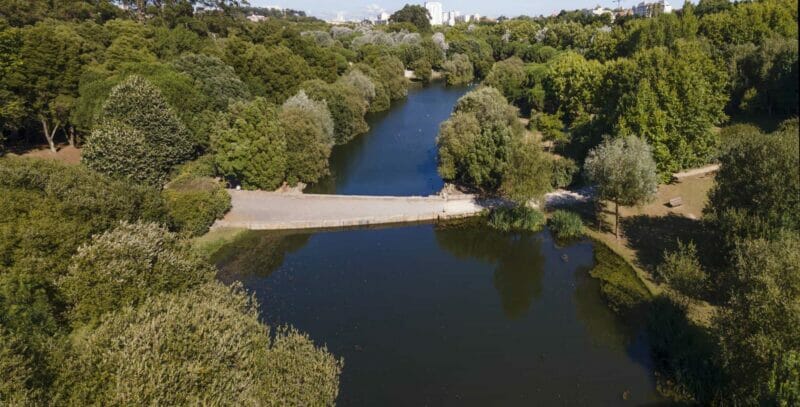
The city is undulating and small enough to traverse on foot. It’s also packed with stunning parks where you can play on sports courts, rollerblade, run, walk, or cycle. Parque da Cidade Porto is a great place to start, or if you’d prefer to take up surfing, then you can head to Foz do Douro for a dip in the ocean!
Porto enjoys a semi-Mediterranean climate, not being as hot as some of its southerly peers but quite a bit warmer than cities like London, Paris, or Berlin.
Being so close to the Atlantic Ocean, Porto does experience rainy periods, but the summer is still lovely and lasting. Expect to experience temperatures as high as 40ºC (104F) as August peaks and the occasional drop below 0ºC (32F) in the depths of winter.
With those summer highs to contend with, it’s no surprise that many of Porto’s residents love to visit the city’s beaches. Take in some fresh sea air or go for a jog at Praia do Carneiro, Praia do Mole, Praia de Fuzelhas, or Praia Castelo do Queijo. Yep—if you spotted it—that last one literally translates as “Cheese Castle Beach”!
Is Porto safe?
Not only did Portugal land the top spot on the Global Peace Index of 2020 as the safest country in Europe, but Porto itself can boast of being one of the safest cities too. In fact, Porto is one of the best cities for families in Europe. Those living in Porto will discover a pleasingly neighborly vibe!
Day or night, Porto is considered a very safe place to wander. However, it’s always sensible to take precautions.
Petty thefts are among the most common issues in terms of crime, so do be wary of leaving valuables on display. Stumbling home from the Port house late at night may also not be the safest of practices, but not necessarily on anyone else’s account!
Is it expensive to live in Porto?
The city of Porto is far cheaper to live in than most other European cities, although it is more expensive than the less populated regions of central and northern Portugal.
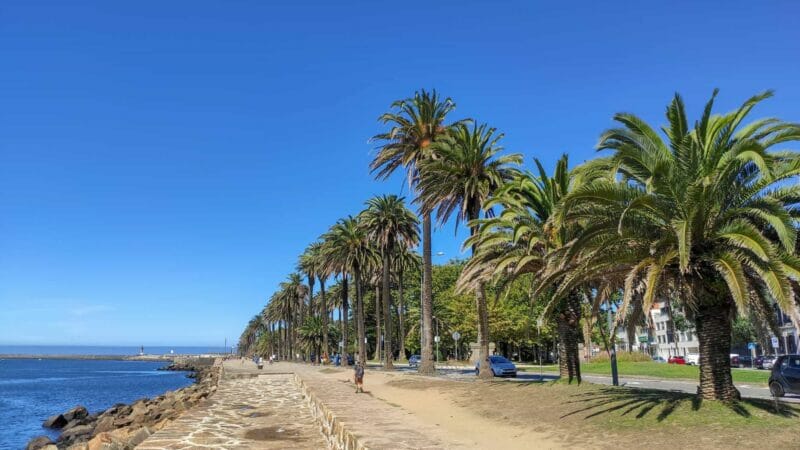
Groceries are comparable with much of Europe—but property prices, rent, and dining out all definitely win a prize in terms of value!
If nipping out to grab a bite on your lunch break, you can find a Prato do dia—or plate of the day—for around €7, including starter, main, and dessert.
For a culinary feast in the evening, anticipate spending around €15 to €25 per person. Do check the menu before taking your seat.
As for drinking, a small glass of Portuguese lager (fino) goes for between €1 and €1.50, depending on the bar. Meanwhile, a pint-sized beer (caneca) will usually set you back between €2 and €2.50.
Accommodation in Porto
If you are planning to rent (which is a wise thing to do when you are new to a place), you will find those studio apartments in the city start from about €500, and 3-bed apartments start from around €1000.
Of course, some of the swankier new builds and regal historic properties can go for far higher prices!
If buying, you can snag yourself a studio in a prime spot for as little as €150,000 and may even find a small house or family-sized apartment for under €100,000 a little further out of town.
Once again, property prices are on a sliding scale in Porto, which happily means there is likely to be something for every budget.
As a final note on finding your perfect Porto bolt-hole, do be mindful of the weather year-round when looking for accommodation. Many of the city’s older properties are not insulated, which can become uncomfortable when the temperature hits its highs and lows!
Looking for a home in Portugal? You can find some useful tips in our guides: Renting A Property In Portugal and How To Buy A Property In Portugal.
How much money do you need to live comfortably in Porto?
A couple can enjoy quite a good lifestyle for €2,500 a month. The biggest spend is rent, of course. Budget in €100-150 on utilities each month, which means that living in Porto can be done on a shoestring budget in comparison to many other expat-favored cities.
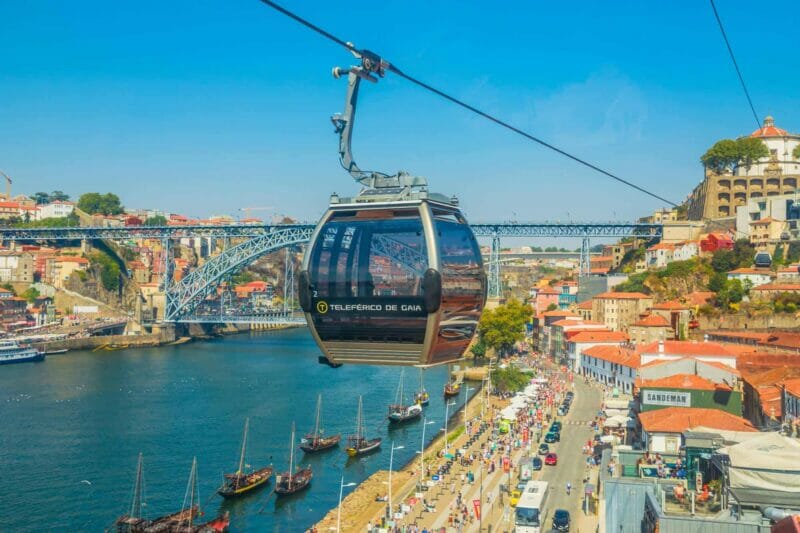
We mentioned that Porto is great to walk around, but if you decide you need more transport options, the Metro is likely your answer. Journeys start from €1,50, and monthly passes are from €30.
There are also modern, cheap, and comfortable buses traveling around the city, although they are notorious for not always running on time! Watch out for the city’s old trams, funicular, and even cable cars, too—although these are mostly used by tourists.
Healthcare in Porto
Portuguese residents can access the Portuguese National Health Service—first by registering for the social security system and then for a medical numero do utente. The only fees are small administrative charges called taxas moderadoras.
To give an example of pricing, an appointment with your family doctor will set you back a whopping €4,50. Affordable private insurance options and international health plans are also available. To make sure you get the best value for money, compare international health insurance options from various providers to find the best deal.
You can find more details on healthcare in Portugal in our Living In Portugal As An Expat guide.
Living in Porto: the pros and cons
The trusty pros and cons list is always a good call when deciding if an expat destination is right for you! Consider these key points when weighing up whether you should try living in Porto:
The pros of living in Porto
1. Relaxed and friendly culture
People in Porto are relaxed, warm, and generous by nature. They will quickly treat you as if you’re family!
2. Epic fine dining
Dining out in Porto is affordable, with a wide variety of restaurants on offer. Experience the finest Portuguese cuisine as well as an international menu.
3. Life by the beach
Enjoy the best of both worlds, with central city living and bathing at the beach only a stone’s throw apart.
4. Spectacular architecture
No matter how busy you are in your day-to-day, it’s impossible to ignore how stunning the city of Porto is!
5. Great connections
Porto has fantastic train connections to Portugal’s other cities, and you can reach the city’s international airport directly via a short metro ride.
6. Top-notch healthcare
Portugal is world-famous for its healthcare system, and with good reason. Living in Porto means gaining peace of mind that your medical needs will be attended to!
The cons of living in Porto
1. Paperwork bureaucracy
The logistics of paperwork in Porto can be frustrating for new arrivals. Whether you’re trying to arrange a purchase or file your taxes, prepare to wait in line and for things to take a while to get sorted!
2. Less international entertainment
Whenever the world’s biggest music acts or art exhibitions hit Portugal, they tend to land in Lisbon a bit more often. However, there are super-speedy trains between the two cities.
3. Tourists descend
Because of its beauty, Porto does tend to attract a lot of tourists in the summer months. Be prepared for the city to swell temporarily!
4. A smaller expat community
There are fewer expats in Porto than in many other European cities, but numbers are on the rise, and the city sees many tourists and international students too.
Porto’s best neighborhoods
The most famous (and expensive) area of Porto is, of course, the Ribeira, which is the glamorous river-front district in the heart of the city.
Moving up and away from the Douro’s banks, we find the similarly trendy Miragaia and Baixa. Keep an eye out for the baroque tower of the Church of Clérigos, but don’t try to scale it as acrobats did in 1917!

If you’re looking for more moderate prices, check out arty and offbeat Cedofeita with its weekly Porto Belo Market, or try the scenic Boavista. If the idea of beach life has stolen your heart, then Foz do Douro is the place to be.
On the inland side of the city’s center, Bonfim and Campanhã offer chic and culture-rich city living with lower prices than the old-town.
If your eyes drift across the river, keep in mind that the south bank, an area called Vila Nova de Gaia, is not technically part of the city of Porto itself. However, with only a bridge to cross and a lot of Port wine to drink, the lower property prices in this area are worth consideration too!
Are there a lot of expats in Porto?
Porto’s expat community is smaller than in many other cities around the world, but it is certainly growing. While retirees more often head for southern Portugal, the city of Porto attracts all age groups.
Lisbon was a very trendy expat destination in recent years, but Porto is starting to see favor as a slightly more affordable alternative.
You’ll certainly find a fantastic mix of people from around the globe. You might not hear it right away, but there are lots of Brazilians living in Porto. Once your ear tunes in to the language, you’ll begin to spot the accent!
Living in Porto vs. Lisbon
Expats living in Porto and those living in Lisbon will both be able to indulge in Portuguese culture, a historical setting, plus espresso and wine in abundance.
Lisbon has a somewhat more international feel to it, with both a larger expat population and more international entertainment rolling through town.

Porto offers just as much heritage but with a slightly smaller-city vibe and lower prices across the board.
Lisbon tends to be a little warmer, which is a bonus in the winter but may qualify as a down-vote for some in the summer.
Of course, both boast the benefits of being beach towns, so you can always dip in to cool off.
Certainly, both are wonderful options for expats who dream of Portugal and want to experience living in an ancient European city with all the romance that entails!
Living in Porto – summary
Porto is a fascinating and spectacularly beautiful city with wonderful opportunities to wine and dine space for an active lifestyle and great family-friendly credentials.
Thanks to a 19th-century siege, the city also has the nickname “Invicta”, which means unconquered. This feels like a pretty poetic moniker for this unbeatably magical place for expats to call home.
Living in Porto offers a myriad of advantages for people of all ages and interests and should definitely be on your expat destination bucket list!
Other popular locations in Portugal to consider:
- Living In Setúbal
- Retiring To Madeira
- Living in Viseu
- Living in Cascais
- Living In Sintra
- Living In The Azores
You might find useful:
- Best Places To Live In Portugal – a detailed overview of Portugal’s most popular locations for expats.
- Living In Portugal As An Expat – The Absolute Relocation Guide – an expat guide to settling down in Portugal: residency options, the costs, healthcare, and more.
- Taxes In Portugal.
- Didn’t find what you were looking for or need further advice? Comment with your question below, and we will do our best to help.

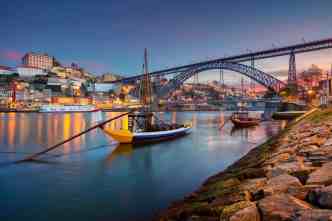
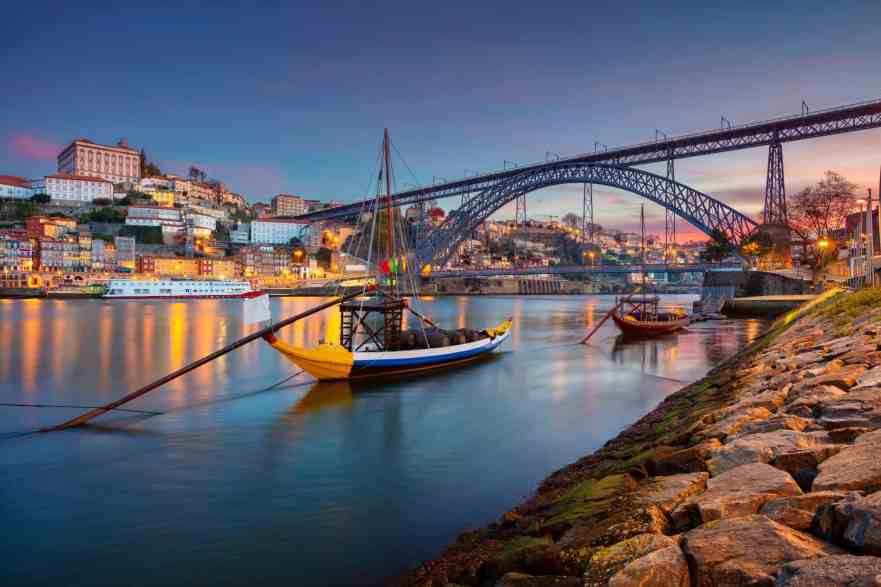
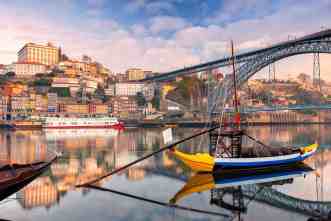
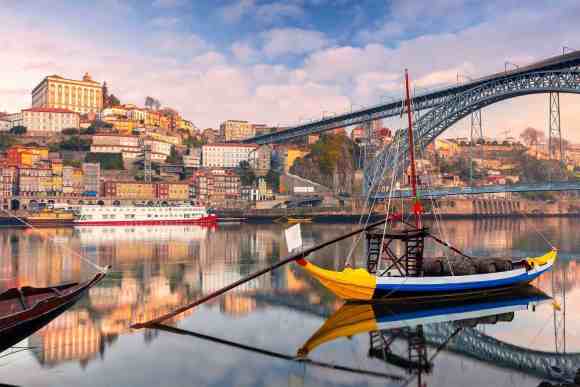
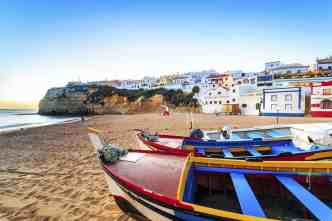
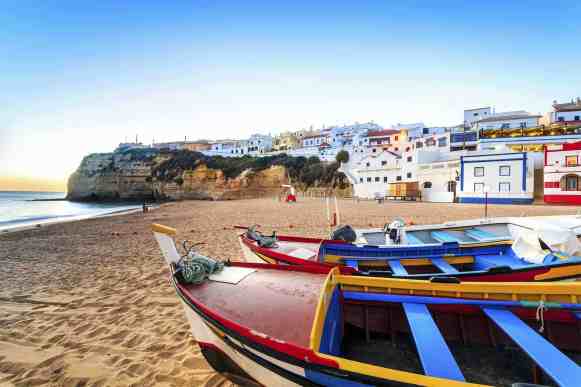
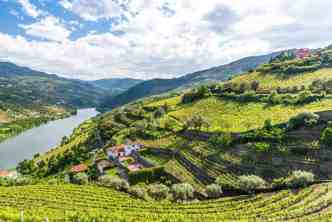
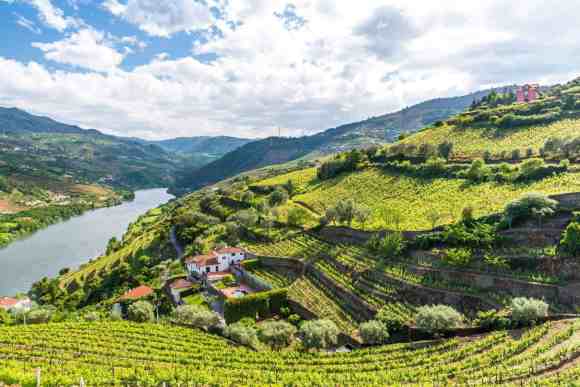

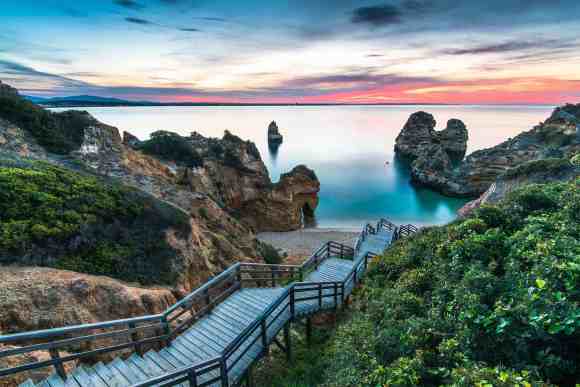
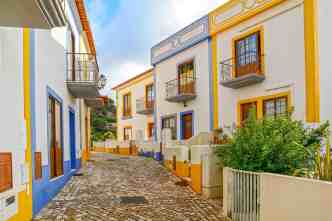
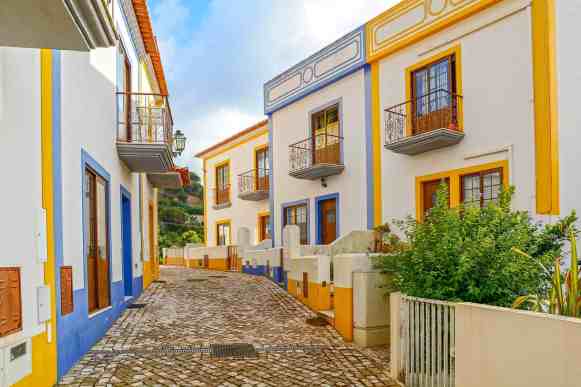


Good day
I would love some information and opinions about the public primary schools in Porto. Are they helpful with English speaking pupils and are there any of expat pupils from South Africa attending these schools
Thank you
Hi Elizabeth, there’s a big and active group on FB called Porto Expats, you would probably find good recommendations there.
All the best
Just left Lisbon by train heading for Porto . Will let you know. Rick
Would be great to hear your opinion, thank you, Rick.
They may of been put off by your entitled and less than courteous request for help of:
“and can tell me which Bloody!! platform is for the airport,please!”…
I went to Porto last year , after seeing all the Videos , and my “YouTube research” told me, i was to find a decent place to settle, i found it quite dark and Melancholy,and people quite Moody a large proportion of Buildings were just about standing, or simply shells, it wasnt cheaper than that of the UK..and thats saying something, but along the river is beautiful…On my last day, when id decided this place wasnt for me…i remember ending up at the wrong platform for the airport, atthe Metro station i was in a panic, time wise, but on the opposite platform were standing maybe over 100 people, all masked up, i was almost alone on my Platform. i shouted, from across the platform, “Does anyone speak English?” “and can tell me which Bloody!! platform is for the airport,please!”…from those 100 people standing opposite not one person helped,not one person said anything”, yuo can keep Porto, and I often wonder now if all these folk that writ eabout it, have ever been…….a place i wasnt expecting to luv or like, which i did and found the opposite to my Experience in Porto ..is Poland , wonderful people and country…
Hi Jemima, Weather sites seem to agree that the high in summer only reaches about 78F…have you had a different experience?
Hi Jennifer, weather sites cite only average highs which are around 78F, however actual temperatures can go higher than the average. Hope this helps.
Expat here living in Porto. After 1 year living here I am looking forward to leave asap when a job offer arrives, I’d like to elaborate why. As said, the expat community is really small, and even smaller for those who are under 30 or close. Besides the meetups published on Facebook pages, it is very difficult to meet young people when taking up hobbies, so you’re at the expense of going out with complete strangers several times. Purchasing power is very low, and that can be noticeable.
Portuenses are very polite and helpful, but they are not keen to welcoming you in their social circles normally, unless you are dating one.
I do not recommend coming here if you are aiming for career growth. I noticed a trend that large corporations mainly established here pure accounting services or Cuatomer Service call centers, not really R+D type of job (except Braga).
Porto is good for someone who is retired, already know some locals or come with friends/couple. If you’re young and come totally by yourself, expect a hard time gwtting to know new people.
Thanks for your contribution, Siko. Although our audience is mostly retirees, this can be very useful for young people looking to relocate.